Dimitris Papaioannou: The Creator
Painter, illustrator, director, choreographer, performer, and designer of sets, costumes, and lighting, his multifaceted work has made him one of the most influential figures in contemporary art.
Starting from humble beginnings in the basements of Exarchia, he soared to new heights on the world’s biggest stages and festivals. Today, with his innovative approach and profound aesthetic, he continues to create and inspire audiences globally.
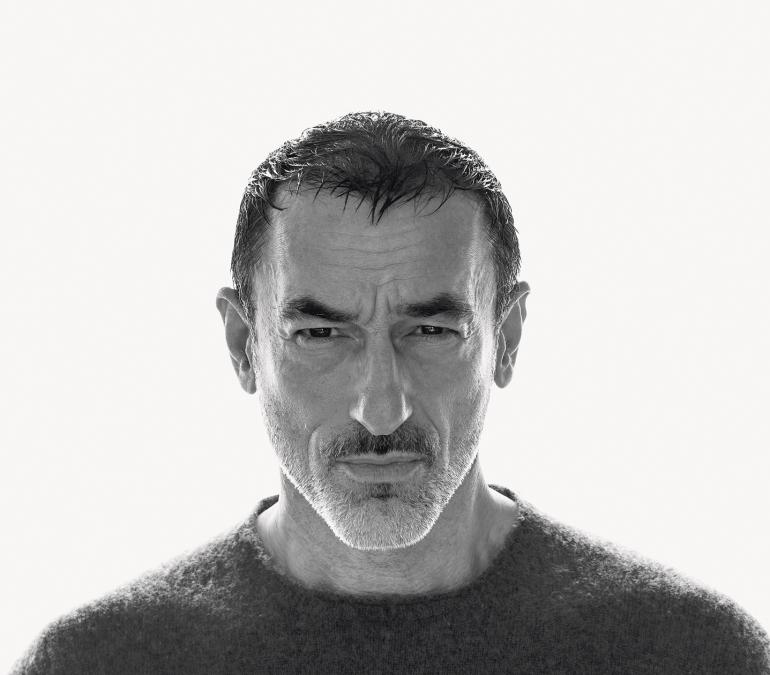
If we were to switch places and you were in my position, what would be the first question you would ask Dimitris Papaioannou?
What stage in life are you in?
So, what stage do you currently find yourself in?
As I turn 60 and enter the third and final act of my life, I have decided to organise my vast archive, encompassing 45 years of creativity. This collection spans from painting and comics to contemporary dance theatre and back to painting again. I realised that if I don’t undertake this task now, someone else will have to do it when I’m gone, and I don’t want that. Over the past decade, I’ve had the immense fortune of showcasing my work on international stages at the world’s best festivals and theatres. I’ve noticed that among the enthusiastic audiences, there are many young people. I want to personally pass on my life’s work to the next generations.
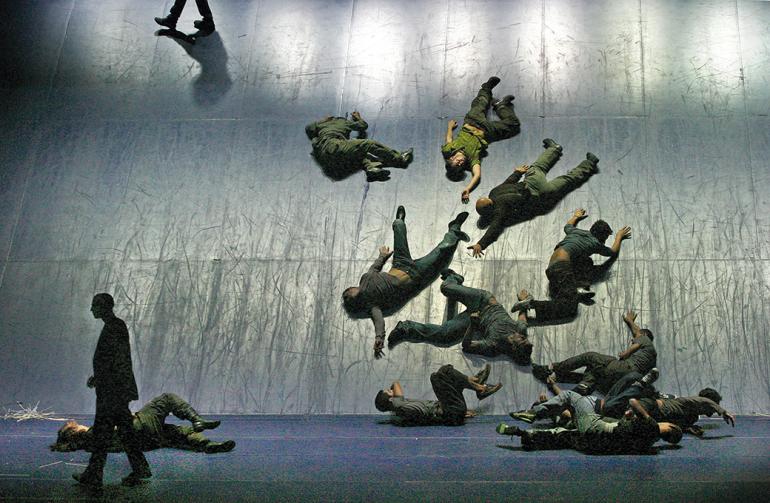
That sounds a bit morbid. It’s like saying, "I’ve grown up, I’m approaching the end, and now I’m reflecting on my life.”
Death is the only certainty in life. I don’t say this mournfully but with full awareness of my responsibility towards my life’s work and my love for young people. One hundred years from now, if a young 20-year-old is interested in exploring the archaeology of art, I want them to discover something I have personally made available online that speaks to their imagination.
Let’s go back in time. What were you like as a child?
As a child, I would passionately draw with markers on walls, floors, and paper. And I’d craft entire shows with my plasticine. I spent countless solitary hours because my hardworking parents were often occupied. I was an introverted child, hesitant to venture out into the neighbourhood to play. I excelled academically until my teenage years, but then I became awful.
Did your family support this talent of yours, which, if nothing else, shone brightly?
My parents came from humble means. My mother worked as a hairdresser, while my father crafted furniture and signs. There was little evidence of art in our home – no paintings or books except for an encyclopaedia by Eleftheroudakis, where I first saw pictures. Yet, fueled by immense love and aspirations for their child, they toiled tirelessly to afford an exceptional education. For that, I owe them everything. Upon entering this esteemed institution, my instructors immediately recognised my artistic talent. Throughout my schooling, I was known as “the kid who paints.” At 17, the school administration decided to showcase my artwork in the library. Among the esteemed guests was Tsarouchis.
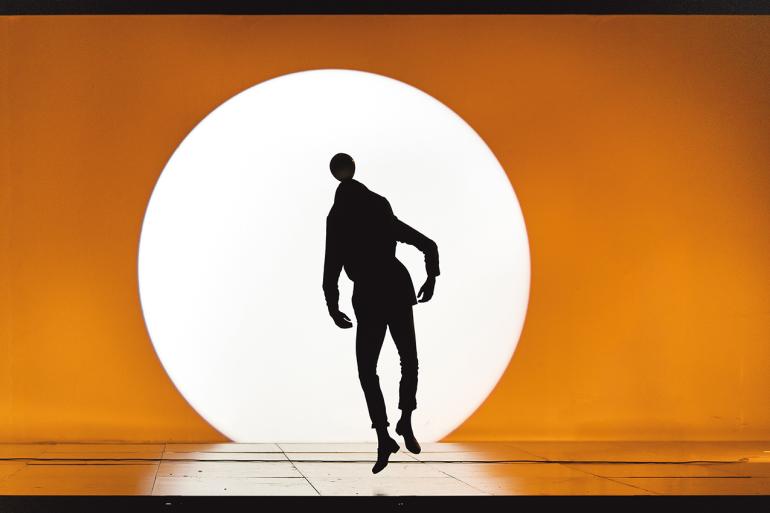
A year later, at 18, you run away from home to become a painter. Why?
For two reasons: being gay was not permitted by my parents, and pursuing a career in the arts was not acceptable. These were the two pillars of my existence, and they were forbidden. So, I made the best decision of my life. I completed my education, packed a suitcase, and disappeared. Without seeking support, I taught myself, lived independently, and continued to navigate life on my own terms.
Did they look for you? Were you told to come back?
Certainly. Four months after I left home, I enrolled in the School of Fine Arts, and that’s when my father reached out, saying, “Come home, let’s reconcile.” I responded, “I don’t need anything.” For years, I harboured anger. However, with time, not only did our relationship mend, but it flourished. I take pride in my decision to break free entirely instead of settling for secrecy, opting instead for complete independence and self-reliance.
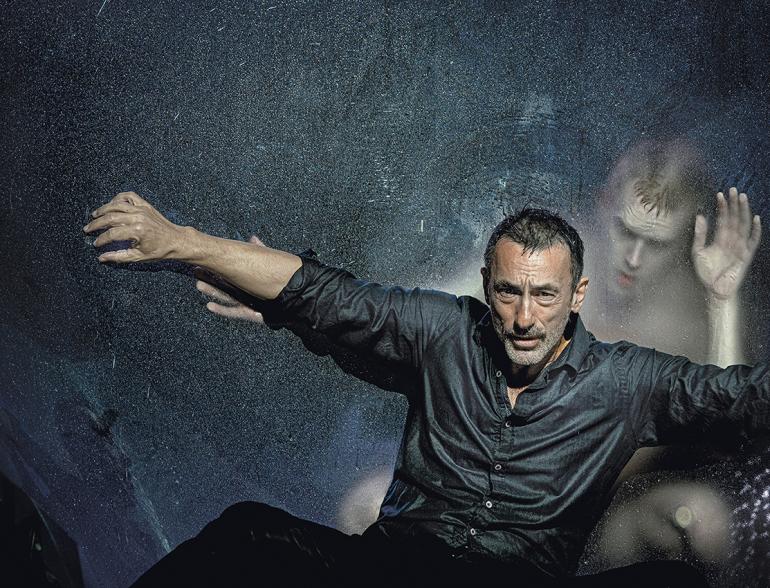
And after that?
Alone in the anarchic, revolutionary atmosphere of Exarchia, I sustained myself by painting portraits of affluent women and children. Yet, I felt disconnected from my own generation; my art failed to resonate with them. To bridge this gap, I turned to publishing comics in Babel and Para Pente –affordable art consumed by my peers– initiating a dialogue with them. It was during this period that I encountered Mary Tsouti, a dance instructor and choreographer renowned for bringing together diverse and intriguing young talents. Enthralled by the contemporary dance scene, I immersed myself in its exploratory spirit. Following an audition, I caught the attention of Ellen Stewart, known as “La Mamma” in New York’s experimental underground theatre scene. She invited me to America, where I underwent training in the butoh dance technique. Upon my return in ‘86, I found “Omada Edafous,” a dance ensemble that disrupts the Greek dance landscape with notable figures such as Melina Mercouri and Manos Hadjidakis, among others.
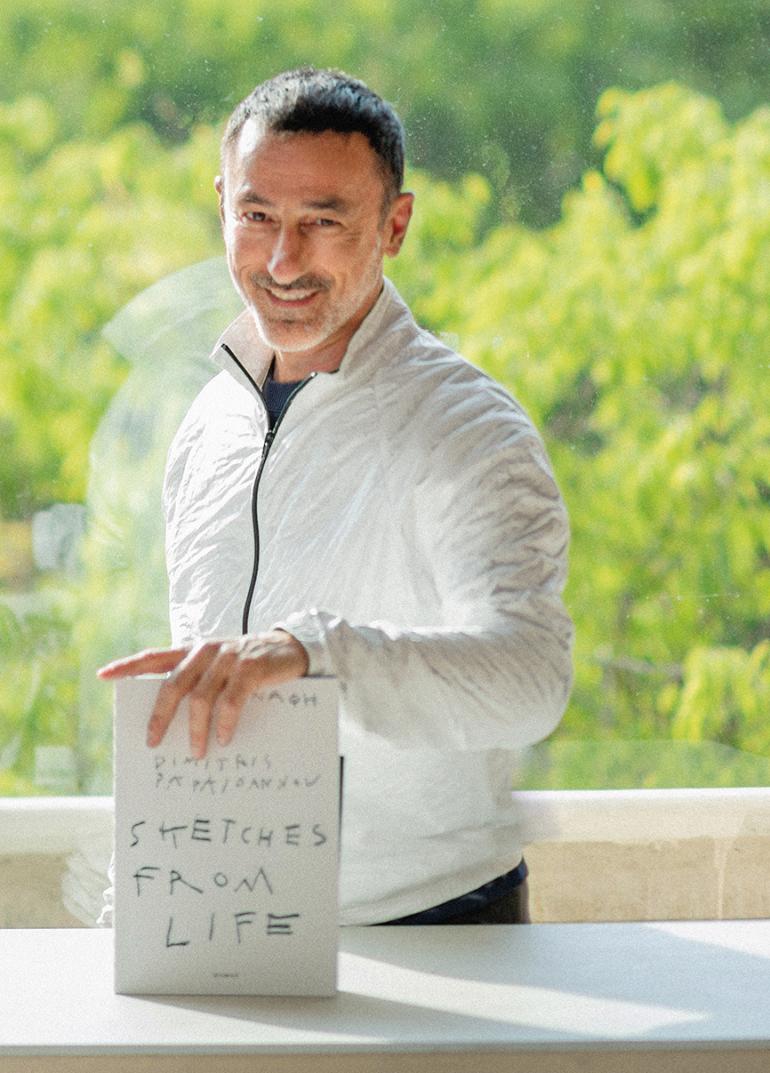
After numerous triumphs, the 2004 Olympic Games emerged, where you spearheaded the conception and execution of the opening and closing ceremonies, earning global acclaim. As the lights dimmed, did you capitalise on this success?
The opening ceremony is a landmark in my life for many reasons, but not because it made me known internationally. They didn’t write about me. They hardly mentioned my name. The praises were about the work, not the person. And no, I didn’t benefit from my popularity. Even if I hadn’t done the Olympic Games, I would have followed the same path. In fact, initially, when in 2015 I started touring theatres abroad, it was considered almost negative that I had engaged in something so commercial. However, I became tremendously popular in my country, receiving an enormous love that I still feel to this day.
Has success and recognition changed you as a person?
They transformed me profoundly, as I shed various ambitions and vanities I once held. Furthermore, I realised the futility of fame. It merely facilitates securing a table at a fully booked restaurant. That’s all reputation amounts to, nothing more.
In the realm of entertainment, have you served diverse artistic spaces – alternative, mainstream, both or neither?
Over the past decade, the festivals I’ve attended have showcased some of the most extreme art worldwide. Nevertheless, I can’t label myself as “alternative” when I’ve orchestrated two Olympic opening ceremonies, even if they leaned towards the alternative side. One thing is certain: I’ve never compromised my identity. Beginning in a wholly alternative space, I garnered immediate popularity with the hybrid and paradoxical creation I devised, shaping a mainstream career from it.

Do negative reviews anger you?
They used to stir anger within me. Now, they don’t even register on my radar. And do you know why? Because I find immense satisfaction in having widespread appeal without pursuing projects solely for popularity’s sake. One of nature’s most precious gifts to me is my ability to communicate effectively. I’ve encountered esteemed artists whom I deeply respect but who struggle to connect with popular sentiment, always maintaining a distance from fervent audiences. For me, because I have a humble essence within me, I can resonate with anyone. The fact that a month after the opening ceremony, I stepped into a taxi and the driver said, “I won’t take money from you,” was the greatest reward. Not because I saved ten or twenty euros, but because a person who would normally never attend one of my performances wanted, from the bottom of their heart, to treat me to a ride.
Tell us a few words about your book entitled, Sketches From Life.
For the past three summers, I frequented a beach in Anafi, sketching unsuspecting nudists, capturing landscapes, and creating portraits of people. I sought an escape from the career and the game it had become. And thus, this book came into being. Yes, even at the beach, I continued to create art. As Joseph Beuys once said, “The artist never takes a vacation.” And neither did I.
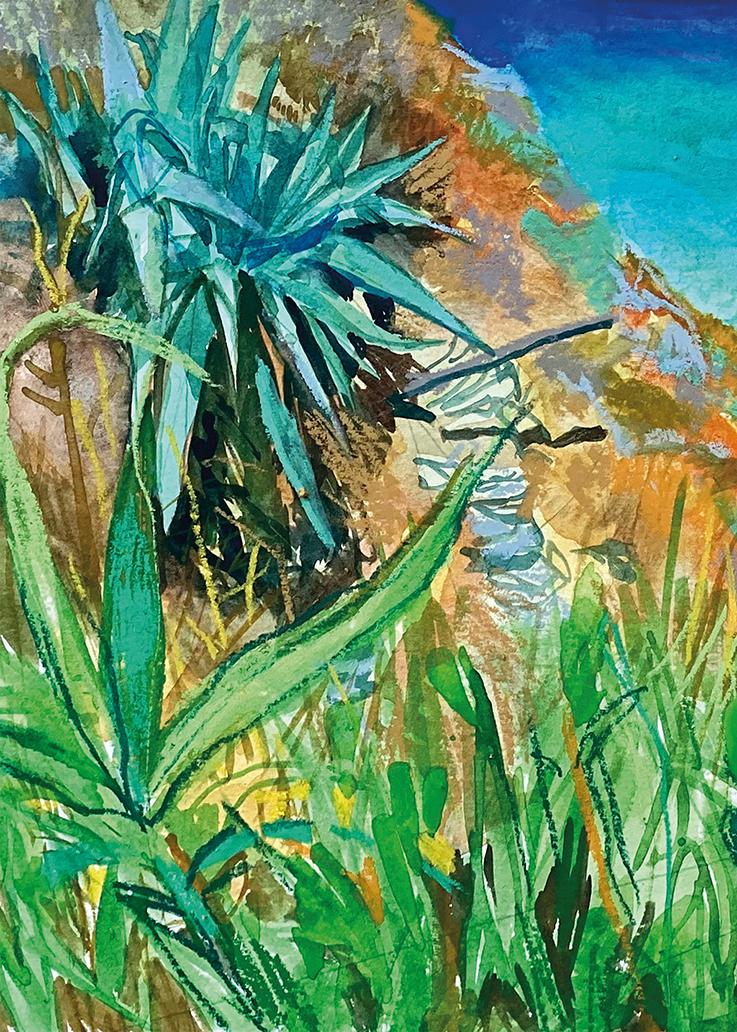
______________________________________
INTERVIEW : ROMINA XYDA

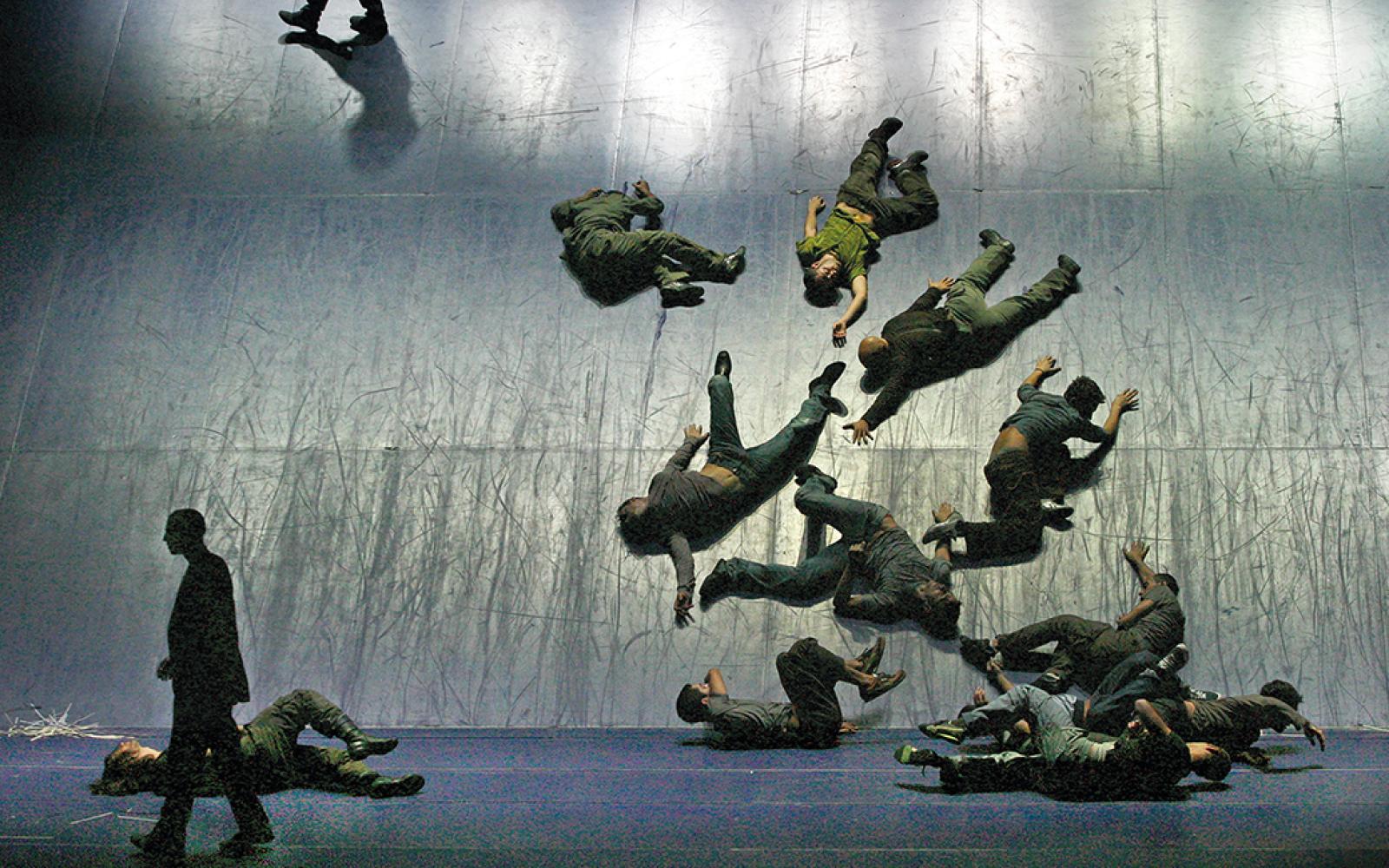
YOU MAY ALSO LIKE
Makris Athens by Domes
Kykladitisses
Faces of the Aegean